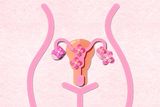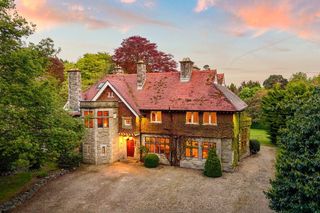'20 years ago no one knew what a craft beer was' - One of Ireland's original craft brewers on Ireland's drinking habits
Seamus O’Hara founded Carlow Brewing Company in 1996.
“We don’t have indigenous wine, we have indigenous beer, and we could be eating it with our Irish food.”
Seamus O’Hara, is one of Ireland’s first brewers of independent craft beer.
He founded Carlow Brewing Company in 1996, long before pubs had beer menus, and over a decade before hundreds of craft beers gushed from the taps to titillate the taste buds of the more curious Irish drinkers.
Very few people in Ireland knew what craft beer was two decades ago. It was a new idea that O'Hara had in his back pocket when he returned from his travels in the UK, Belgium, Germany and the USA.
“We were one of the first, we started in 1996, over 20 years ago. There were a few breweries that had started around the time like Porterhouse. There were other breweries but they closed down a few years later.”
“It was a whole new thing and the market wasn’t developed for craft beer, and people were used to the same three or four beers in every pub and supermarket. It was tough enough but we progressed, partly depending on the domestic market and partly on exports.”
“It was definitely hard to sell it. We would have gotten good support locally in Carlow at the time, but to launch a new category of product it’s hard to get consumers switched on to it. People were not used to a variety, people would go into a bar and automatically order what they always ordered and never checked a menu.”
In the mid-noughties, Irish craft beer went mainstream. Last year, there were 72 craft breweries in Ireland, according to Bord Bia.
Is there room for so many craft beers in Ireland, when you consider that they account for only 3.5per cent of the Irish beer market?
“Yes and no” is O’Hara’s answer.
“The potential is there to grow. The challenge is growing that and getting more people involved. When we started, no one knew anything about craft beer but it’s still early days.”
“In the short term, there’s a lot of micro-breweries that have started so there’s a lot [of breweries competing] to get that 3.5 per cent. So if we can get to ten per cent, there’s loads of room for the breweries we have here. In the short-term it’s definitely competitive, and there are some big players and we have to compete with them.”
“The big guys are bringing out products that would then compete in this space as well, and there are import beers coming in as well.”
Alcohol giant Diageo tapped into the market in recent years with its craft brews like Hop House 13, while Heineken developed Cute Hoor.
O’Hara is optimistic about the future, saying that the discerning beer drinker won’t turn away from the unique story of an independent craft beer.
“The beer consumer is spoiled for choice so it’s a great time to be a beer drinker in Ireland,” he said.
“To me, the genie is out of the bottle, if you experience something that’s really interesting and satisfying in terms of food or drink, you’re not really going to go back.”
“I would think with the independent craft breweries, it’s about the story, the providence of where it came from, who brewed it. With the independent breweries you know where it’s brewed, you know who brewed it and that’s crucially important.”
Every six months, Carlow Brewing Company releases a single hop beer, to highlight the qualities and flavours of a particular hop. They’ve just launched ‘Eureka’ single hop IPA, the fifth of the ‘Hop Adventure Series’ which features the Eureka hop from the Yakima Valley, USA.
“One of the strengths of craft beer is it tends to be more flavoursome so it tends to be appropriate to have it with food. There are flavours in the food that will contrast with the flavours of the beer. The darker beers will be made with roasted barely and have a caramelised flavour, which complements meats that are barbecued or roasted and have that caramelised flavour as well.”
“But then again there are varieties, lighter beers that might go with a salad. A lot of it is down to personal choice and it’s about experimenting and switching on to that.”
He added: “We have a tradition of drinking wine in restaurants in Ireland, but people would say beer is much more complex, it’s got more ingredients in there. Wine just has grapes. Beer has hops flavours, malt flavours, and the water can bring different elements to it, for example.”
Gone are the days when O’Hara had to explain what exactly a craft beer was.
“It was definitely part of the dream that you weren’t trying to explain what a craft beer was, that people now know that craft beer is a category. Now that it’s more established, at least now you can talk about the product, there’s an awareness and an interest in beer and people are ready to engage in chatting about it.”
He added: “Something that’s a higher quality can be at a higher price. In general, I don’t think craft beer is excessively priced. You’re paying for the premium quality of the product and people tend to savour the taste.”
O’Hara says the culture of beer drinking is changing in Ireland, as we move away from the pint idea.
“Everything was by the pint and there have been generations of people just knocking back pints and the beer tended to be very easy drinking beer.”
“Maybe it takes people a little time to appreciate that some might be higher in alcohol which are supposed to be consumed in small quantities anyway.”
“If it’s a four per cent beer, maybe then a pint glass, but if it’s an 8pc beer maybe then the glass could be a third of that. It’s part of a change in culture here, as people get into craft beers more.”
As the passion for craft beer spreads in Ireland, O'Hara says he's looking forward to the future.
“It’s frustrating that a big player can put out a product that masquerades as a craft beer,” he said, later adding, “there’ll be a few wobbles along the way. We haven’t had 20 years without a few wobbles. But I relish the opportunities ahead.”
Join the Irish Independent WhatsApp channel
Stay up to date with all the latest news














